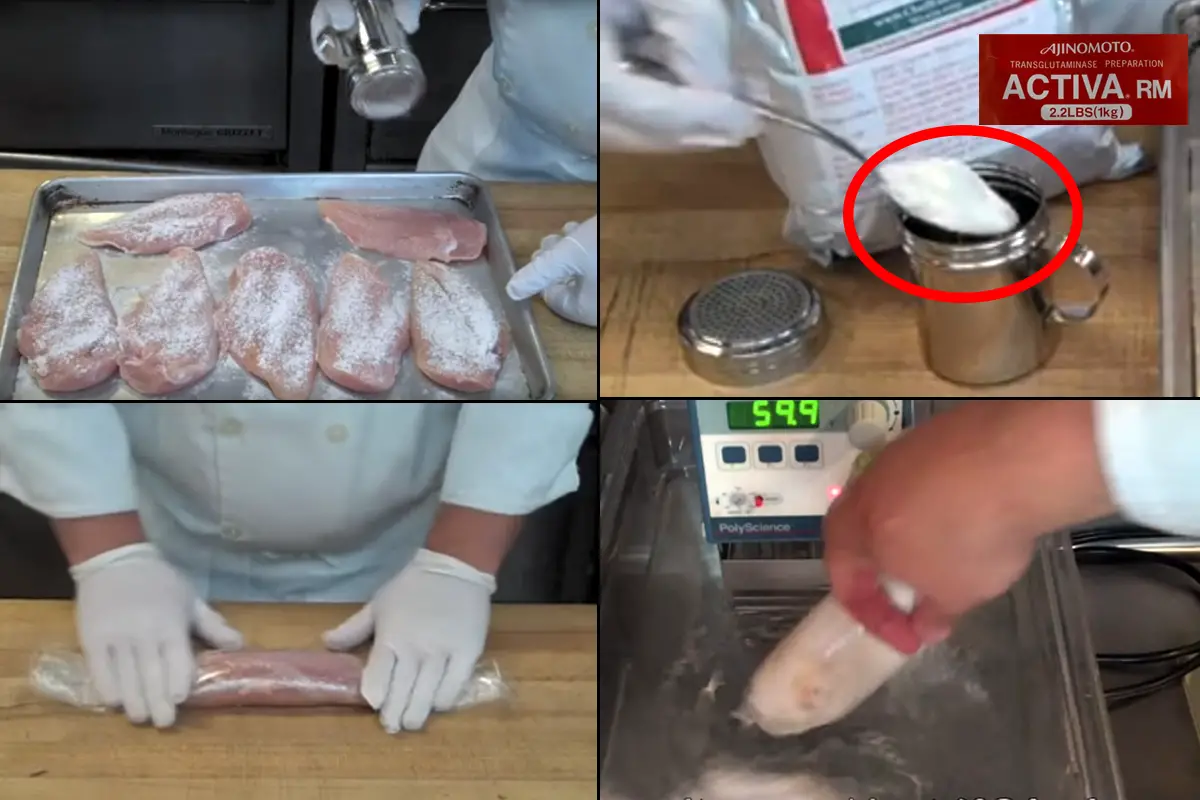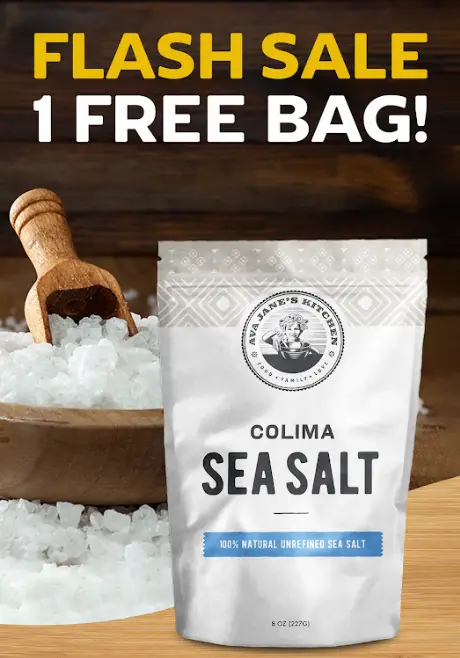Most people will pay significantly more for a chunk of high-quality steak; it even looks better served on a plate at high-end restaurants. But the food industry will do everything to make it as cheap as possible to produce — even if it means gluing pieces of non-quality meat together and pass it as a prime cut.
Regardless of how that steak looks when it reaches your plate, you may have just purchased a cut of meat that has been glued together by an additive most commonly referred to as “meat glue” or transglutaminase — and it could be putting your health at risk.
Transglutaminase is an enzyme found in animals, which helps blood clot, but the food industry can also get it from a type of plant-derived bacteria.
While widely used in the U.S, “meat glue” has been banned in the European Union over the health concerns associated with it, as well as over moral implications of this additive in misleading the consumers.
What is “Meat Glue?”
“This little enzyme has the ability to kind of bond or bridge things together,” said dietician Tammy Cheguis.
“Meat glue,” transglutaminase (TG) or Thrombian is a meat blood enzyme that holds pieces of meat together to make it seem as one larger piece. Mostly used in cooked food in restaurants and pre-packed meals such as chicken nuggets, fish cakes, and crab meat, it sometimes it is also used in raw chunks of meat. Its other uses are in dairy products to make them creamier.
The finished products with “glue meat” are indistinguishable to the average consumer.
Chef Jacob Burton shows how he uses Active RM (one of the most popular TG products) to reconstruct a chicken breast:
***
Ditch the Factory Farmed, Toxic Chemical Packed Meat Today!
Order Your First Box of Meat from Wild Pastures By Clicking Here
On Sale Now for 20% Off Your First Box – Pasture-Raised, Grass-Fed and Finished Meat
– Click Here to Order Your Wild Pastures Box Today
***
How Widely is “Meat Glue” Used?
“Sometimes in the … food industry, if you’re left with a lot of little bits of meat … and you can’t really make a steak or a chop from those little cuts, you can actually take all those little pieces and put them together,” Cheguis said.
In the U.S., there are no regulations about using “meat glue.” To save money, many chefs are using “meat glue,” and some have been even flaunting it in consumers’ faces.
“Reputable restaurants and chefs use TG in the preparation of some menu items when they are cooking or reassembling a meat preparation that has been deconstructed in order to cook it properly. They then reassemble the product for that particular dish,” reported The Forbes.
Chef Wylie Dufresne of New York has been trying to defend “meat glue” as a way to manipulate food in an innovative way, saying it makes chefs better.
“Better” chefs also means richer chefs as one can turn a $4-per-pound meat cuts into a $25-per-pound prime fillet.
What these chefs are not considering are health risks over bacterial contamination.
Health Concern over Meat Glue
“When you think about a cut of meat … you know that you can cook a steak to medium and you should be fine because you’ve killed most of the surface bacteria. But if you then take chunks of meat which have their own surface area, and you now glue them together with something, you now cannot do that same thing. You can’t just cook it to medium,” Cheguis said.
Meat glue has been banned in the European Union because of health concerns. While this enzyme by itself has not raised any red flags, it is the way it needs to be cooked that may create issues.
The enzyme does not cook the same way as the rest of the meat and requires to be cooked thoroughly in order to kill any bacteria in it. This becomes a problem when people order a steak that is medium-rare, leaving the material not fully cooked and potentially hazardous to health. The bacterial contamination risk of meat glued together is believed to be hundreds of times higher than regular meat.
In addition to the EU’s ban, other countries have implemented some regulations. In Canada, the enzyme cannot be legally sourced from cow and pig blood, and instead, has to be sourced from a very specific bacteria (plant-based) only to be used in some foods.
In the U.S., “meat glue” is widely available and used; anyone can purchase it online, and there are no sourcing regulations, it can be made from plant-extract bacteria or blood. The latter causing the most health issues of under-cooked meat.
“If there is a bacteria outbreak, it’s much harder to figure out the source when chunks of meat from multiple cows were combined,” said Keith Warriner at the University of Guelph in Canada.
Besides the health issues, using “meat glue” is also incredibly misleading.
How This Additive Deceives the Customers
When its “meat glue” ban was passed down in 2010, the EU lawmakers concluded that it has absolutely no benefits to the consumer yet can “carry an unacceptably high risk of misleading consumers.”
“Consumers in Europe should be able to trust that they are buying a real steak or ham, not pieces of meat that have been glued together,” reported Food Safety News.
Meanwhile, in the U.S., chefs are using “meat glue” all the time, with many calling it “magic.”
Most consumers are likely to agree that besides the health risks, it is unethical to charge as much money for a chunk of meat that has been glued together, and if “meat glue” is used, a transparency about its use on the label or in the ingredient list is needed.
Watch a TV report about “meat glue”:
How to Avoid Meat Glue
The best way to avoid meat glue is to avoid buying conventionally raised, factory farmed meat whenever possible. If the label seems like it’s “natural” but doesn’t say grass-fed, pasture-raised, or free-range then it is much more likely to contain meat glue and other potentially toxic, unhealthy additives.
***
I personally get my meat from Wild Pastures
Wild Pastures is offering 20% off for all new customers now for a limited time only
Click Here to take advantage and get grass-fed and finished, pasture-raised meats delivered to your door for the lowest prices (Click Here to Try It Today Only)
***
Related reading:
Largest Pork Producer in the U.S. Now Owned by $22 Billion Chinese Meat Processing Company
Thanks for installing the Bottom of every post plugin by Corey Salzano. Contact me if you need custom WordPress plugins or website design.












